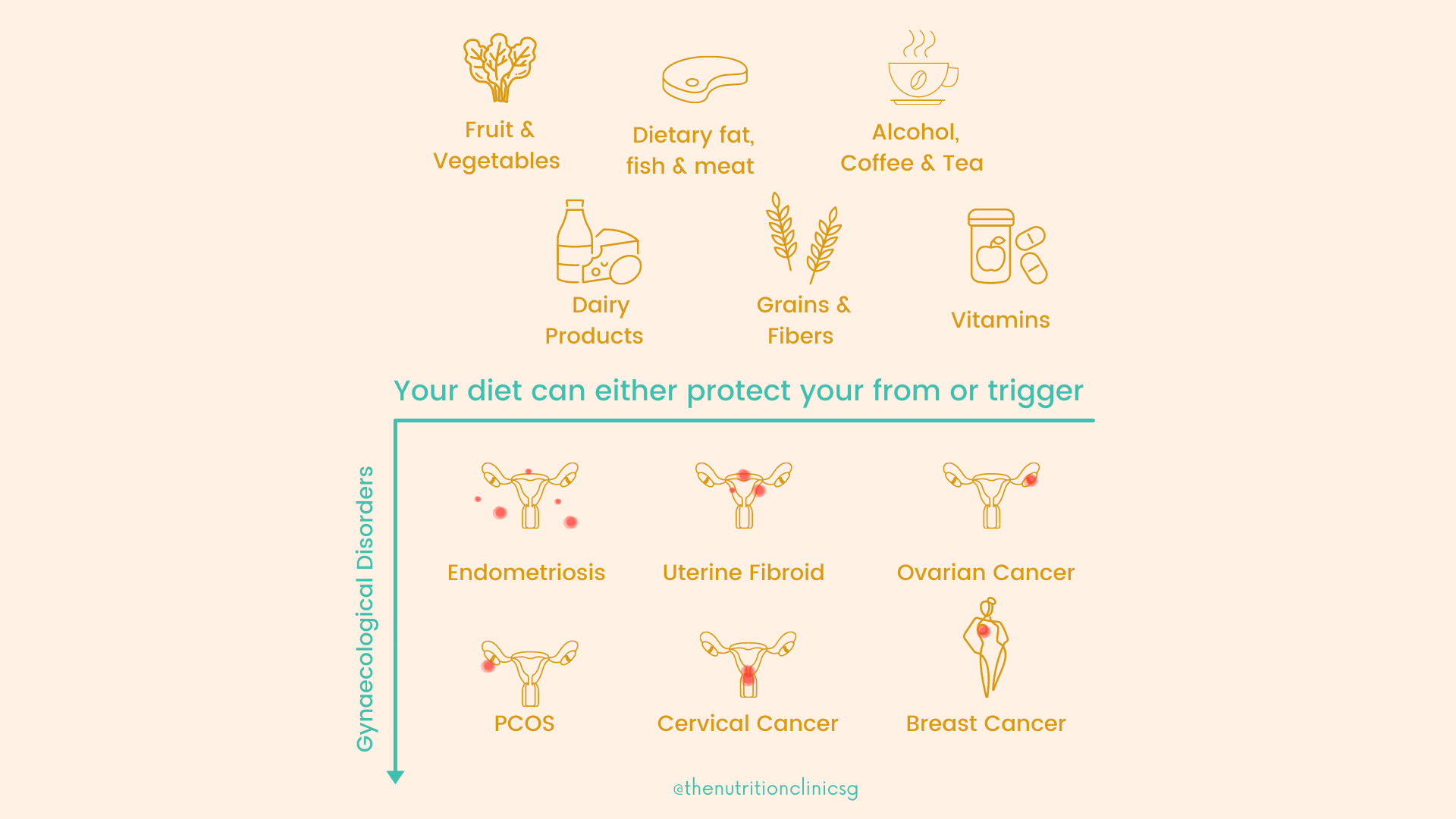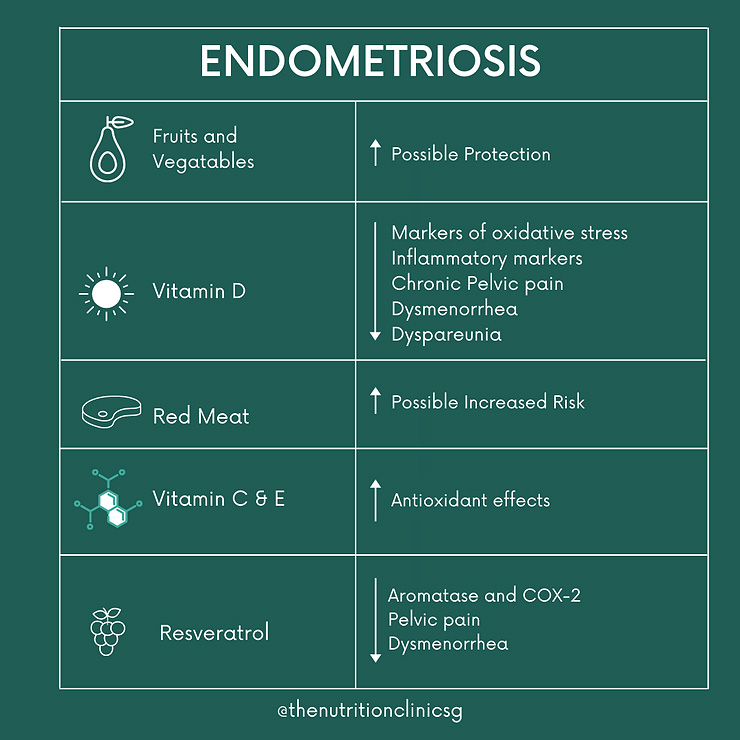Diet and Nutrition in Gynaecological Disorders (Part 1)

Worldwide, women are afflicted by a spectrum of gynecological disorders, ranging from benign entities, such as uterine fibroids to PCOS.
Based on clinical study “Diet and Nutrition in Gynecological Disorders: A Focus on Clinical Studies” by Department of Gynecology and Obstetrics, Johns Hopkins University School of Medicine published 21 May 2021, it is clear that upon observational and epidemiological investigations nutritional factors and dietary habits play a significant role in gynecological disease development.
Our daily diets consist of nutritional constituents that have are critical in maintaining physiological processes. Gynecological malignancies, comprising uterine, ovarian, cervical cancers, as well as breast cancer, represent the most common malignant entities in women.
We help break it down for you on how you can set the foundations of food and lifestyle to treat these conditions, but we highly recommend you to consult with your health practitioner further to ensure that you get the treatment needed to get to the root of your health conditions.
Food and Lifestyle can either Protect or Trigger disorders in women
1. Endometrosis
Let’s focus a little bit on Endometriosis.
Many women think that symptoms from gynaecological disorders like endometriosis is “all in their head”. It is estimated that one in 10 women suffer from endometriosis. And according to an article reported by @todayonline, the number of patients seen at the endometriosis clinic at the National University Hospital (NUH) Women’s Centre has increased six times since it opened six years ago.

Experts believe endometriosis is set to become increasingly prevalent among Singapore women in the reproductive age group, given later ages of conception and fewer pregnancies compared to the previous generations.
Endometriosis happens when tissue similar to the lining of the uterus (womb) grows outside of the uterus. Our advice for women is to not downplay their period pain. And if your periods cramps are becoming abnormal and severe, to get it checked as soon as you can.
According to the study, increasing your intake of fruits and vegetables increase protection while eating red meat is possibly linked to increased risk to endometriosis.
In a randomized, placebo-controlled clinical trial, 34 women with endometriosis received vitamins C and E or placebo for 6 months. Vitamin C and E supplementation was associated with a decrease in oxidative stress markers in women with endometriosis.
Getting the right nutritional strategies, enough sun and movement can help. Don’t downplay your symptoms — you do not need to live with the symptoms and have it affect your quality of life.
2. PCOS
Polycystic Ovary Syndrome (PCOS) is the most common hormonal disorder in women of reproductive age, affecting about 10% of women in this age group.
Symptoms include:
- Infrequent or absent periods
- Infertility and Miscarriage
- Acne
- Excess body hair
- Scalp hair loss
- Weight gain and obesity
- High blood pressure
- Elevated insulin levels and diabetes

Women with PCOS are at increased risk of insulin resistance and associated conditions, including metabolic syndrome, non- alcoholic fatty liver disease and hypertension.
The first line of management for PCOS is through weight loss and dietary modifications.
According to the study, modest weight loss, which decreases circulating insulin and androgen concentrations, has been shown to improve the symptoms of PCOS.
Minimising carbs, and increasing healthy fats and quality protein will help with insulin resistance, reduce BMI and waist circumference, reduce triglyceride levels (fats from the food we eat that are carried in the blood) and increase levels glutathione (a powerful antioxidant that’s made in the body’s cells to reduce oxidative stress and toxin exposure).
Want to learn more on how you can manage your condition with food and nutrition? Stay tuned to this 3 part series on healing gynaecological disorders through food and nutrition.
Would like to speak to our team? Reach out to us here or book a free 10-min consultation here.

